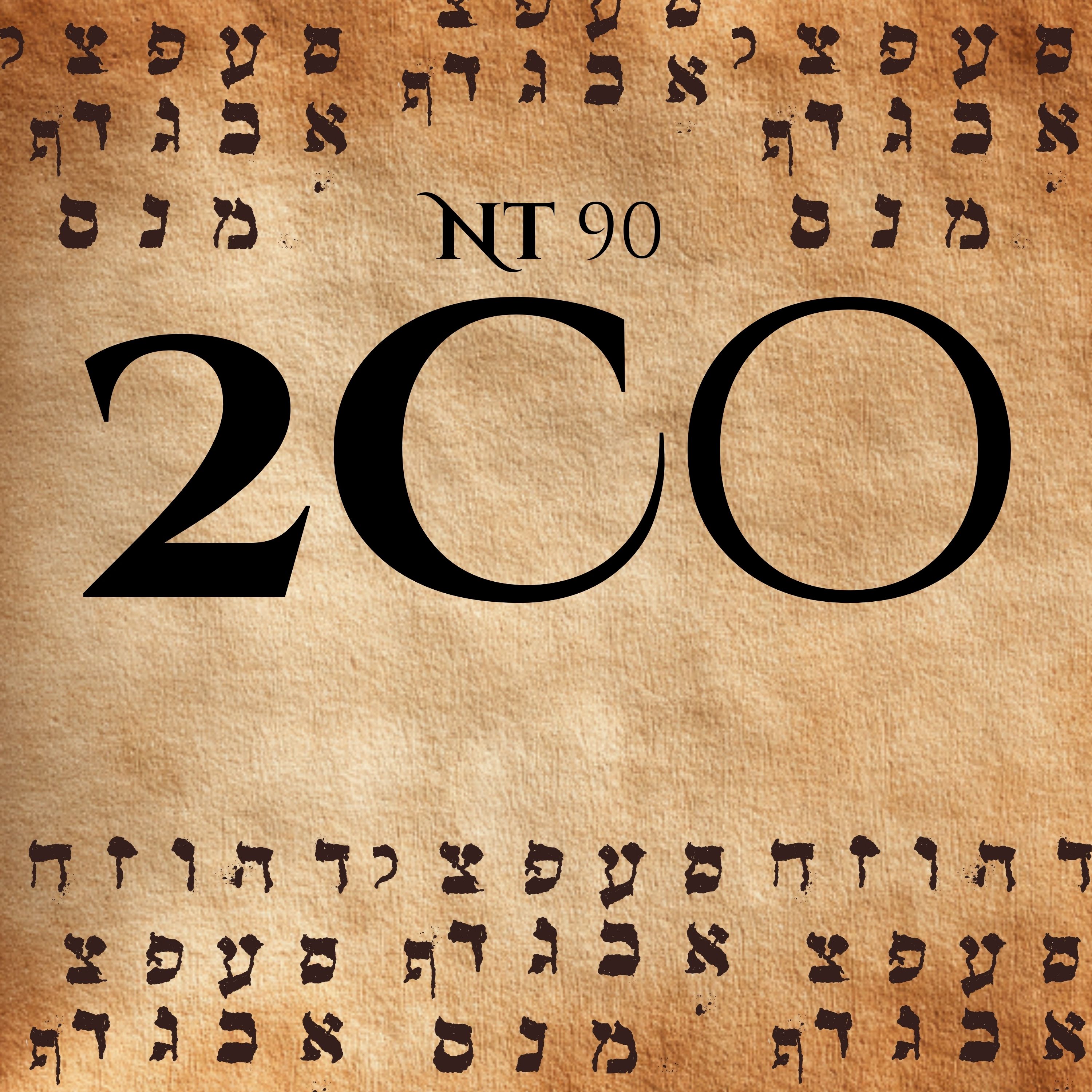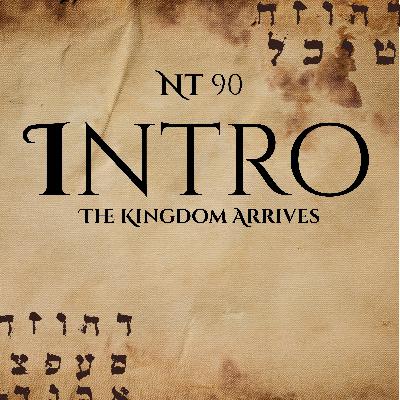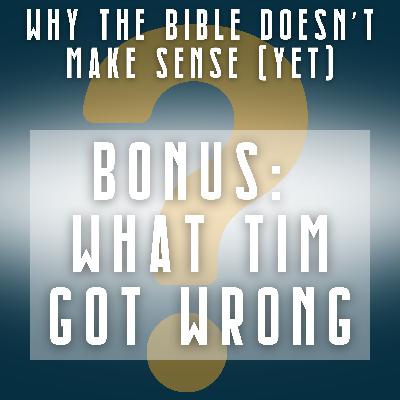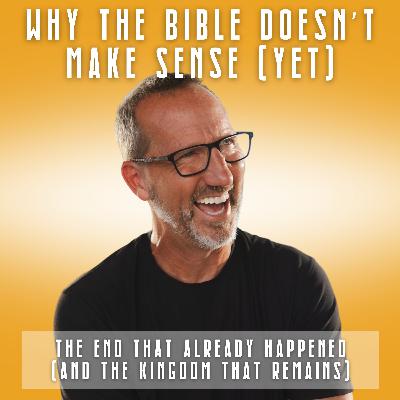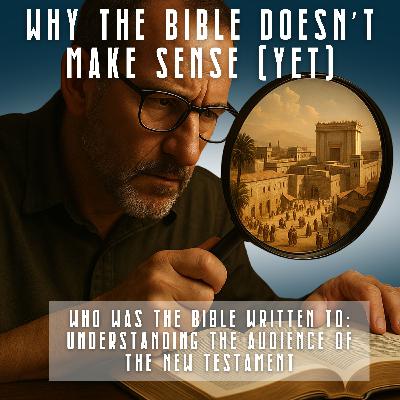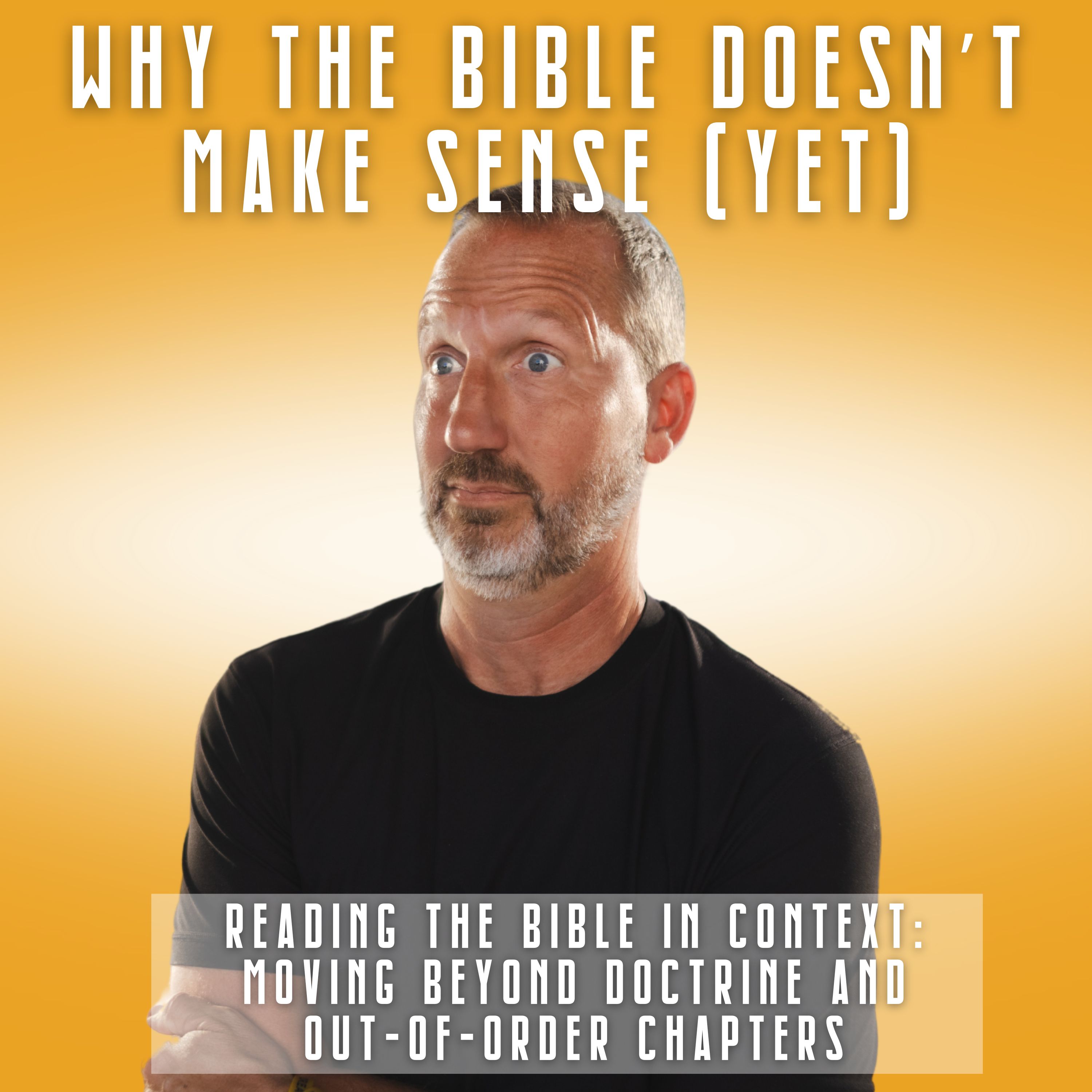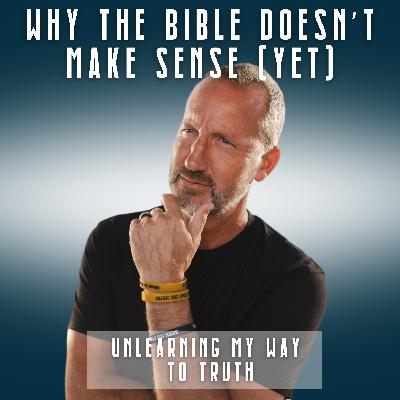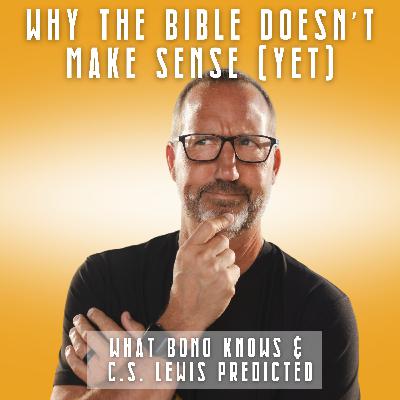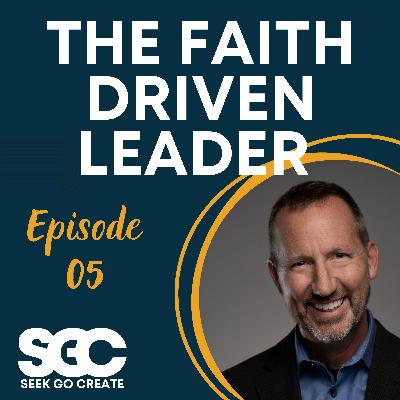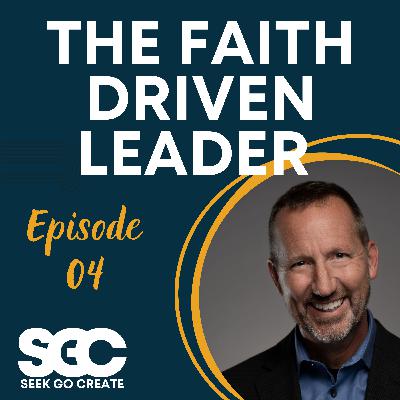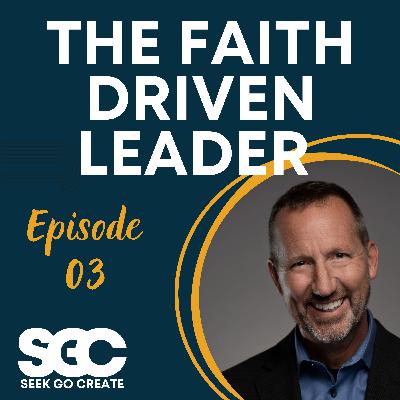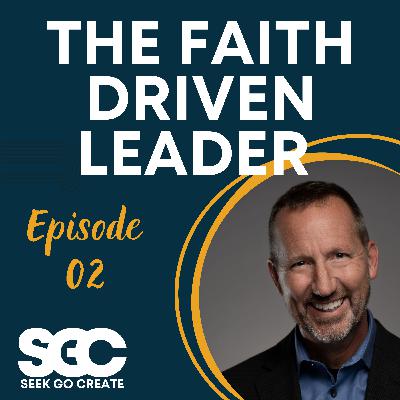Discover Seek Go Create - The Leadership Journey for Christian Entrepreneurs and Faith-Driven Leaders
Seek Go Create - The Leadership Journey for Christian Entrepreneurs and Faith-Driven Leaders

Seek Go Create - The Leadership Journey for Christian Entrepreneurs and Faith-Driven Leaders
Author: Tim Winders - Coach for Leaders in Business & Ministry
Subscribed: 22Played: 698Subscribe
Share
© Copyright 2026 SGC Media
Description
Welcome to "Seek Go Create: The Leadership Journey," where faith and business intersect to redefine success in leadership. Hosted by Tim Winders, a seasoned executive coach and author, this podcast is your gateway to thriving in the competitive world of business without compromising your core values and beliefs.
Every Monday, join us as we explore how successful business leaders integrate their spiritual life into their professional endeavors. Discover actionable insights and strategies for maintaining integrity and fostering innovation, even in tough market conditions. Whether you're an entrepreneur seeking to build a kingdom-minded business, a CEO aiming to infuse your corporate environment with Christian values, or a manager navigating ethical dilemmas, "Seek Go Create" provides the wisdom and support you need.
Our episodes feature in-depth discussions with thought leaders and innovators who share how they've successfully woven faith into their leadership and business practices. From overcoming challenges to celebrating milestones, we cover it all, equipping you with the knowledge to lead with conviction and impact.
Tune in to "Seek Go Create: The Leadership Journey" for your weekly dose of inspiration and practical advice on how to lead with faith, grow personally and professionally, and impact your world without losing sight of what truly matters.
Join our community of faithful leaders and subscribe now to never miss an episode. Embrace the journey of redefining success with integrity, purpose, and a whole lot of heart.
Every Monday, join us as we explore how successful business leaders integrate their spiritual life into their professional endeavors. Discover actionable insights and strategies for maintaining integrity and fostering innovation, even in tough market conditions. Whether you're an entrepreneur seeking to build a kingdom-minded business, a CEO aiming to infuse your corporate environment with Christian values, or a manager navigating ethical dilemmas, "Seek Go Create" provides the wisdom and support you need.
Our episodes feature in-depth discussions with thought leaders and innovators who share how they've successfully woven faith into their leadership and business practices. From overcoming challenges to celebrating milestones, we cover it all, equipping you with the knowledge to lead with conviction and impact.
Tune in to "Seek Go Create: The Leadership Journey" for your weekly dose of inspiration and practical advice on how to lead with faith, grow personally and professionally, and impact your world without losing sight of what truly matters.
Join our community of faithful leaders and subscribe now to never miss an episode. Embrace the journey of redefining success with integrity, purpose, and a whole lot of heart.
357 Episodes
Reverse
Have you ever wondered how an ancient letter could unite a divided community—and transform the way we understand faith today? In this episode of Seek Go Create, Tim Winders walks us through the Book of Romans, Paul's powerful theological masterpiece written to a church he had never visited. Discover the drama of first-century Rome, the challenges between Jewish and Gentile believers, and why the timeless truths in Romans still matter for us now. Whether you’re a longtime Bible reader or just curious, this episode will open your eyes to the heart and depth behind one of the New Testament’s most influential writings. Don’t miss this opportunity to read Romans as the very first believers did!“Righteousness is a gift, not an achievement.” - Tim WindersAccess all show and episode resources HEREEpisode Resources:NT90 Hub – This is the central website for the 90-day New Testament reading plan, with downloadable, printable plans, background information, and links to all episodes and resources.Episode Highlights:00:00 Introduction to Romans00:21 Overview of the Reading Plan01:00 Context and Background of Romans03:58 Phoebe: The Courier of Romans04:57 Historical Context: The Expulsion and Return06:41 Paul's Strategic Plan for Rome07:20 The Setting in Rome09:54 Paul's Comprehensive Theology in Romans11:44 Key Themes in Romans14:05 Reading Assignment and Conclusion
What if true strength isn’t about power, but about embracing your own weakness? In this episode of Seek Go Create, Tim Winders dives into 2 Corinthians, Paul’s most personal and vulnerable letter, written to a church wrestling with doubt, division, and new challengers. Discover how Paul redefines power and leadership by boasting in his hardships instead of his achievements, sharing how the upside-down logic of the Kingdom finds strength in weakness. If you’ve ever questioned what real spiritual resilience looks like, you won’t want to miss this deep and relatable exploration of reconciliation, suffering, and hope.“Strength through weakness does not make sense in the world system—but in this new kingdom, there is strength in weakness.” - Tim WindersAccess all show and episode resources HEREEpisode Resources:NT90 Hub – This is the central website for the 90-day New Testament reading plan, with downloadable, printable plans, background information, and links to all episodes and resources.Episode Highlights:00:00 Paul's Painful Visit and Reconciliation00:21 Introduction to the New Testament Reading Plan01:04 Overview of Second Corinthians01:47 Historical Context and Setting02:57 Paul's Response to False Apostles06:22 Reading Plan for Second Corinthians06:43 Setting the Scene for Second Corinthians07:19 Paul's Vulnerable Letter
What happens when a church is gifted but chaotic, torn apart by divisions, immorality, and confusion? In this episode of Seek Go Create, Tim Winders explores Paul’s powerful first letter to the Corinthians—a message from 25 years after the resurrection, written to a community struggling to live out their faith amidst turmoil. Discover the historical context, the messy realities of early believers, and the radical call back to the cross and resurrection. If you’ve ever wondered how ancient letters shaped Christian theology or how their lessons apply to our lives today, this is an episode you don’t want to miss.“Every correction in this letter flows from that foundation: resurrection.” - Tim WindersAccess all show and episode resources HEREEpisode Resources:NT90 Hub – This is the central website for the 90-day New Testament reading plan, with downloadable, printable plans, background information, and links to all episodes and resources.Episode Highlights:00:00 Introduction to Seek Go Create00:19 Understanding the Context of the New Testament01:24 Introduction to First Corinthians03:47 Historical and Cultural Context of Corinth07:17 Issues Addressed in First Corinthians07:54 Paul's Core Message: The Resurrection10:30 Reading Assignment and Final Thoughts
Are you ever tempted to panic when rumors swirl about the world ending? In this episode of Seek Go Create, Tim Winders dives into 2 Thessalonians, exploring how early believers faced forged messages and confusion about the "day of the Lord." Discover why Paul urgently reminded the church to stand firm, keep working, and anchor their hope in Jesus' return, not fear. Listen in to uncover the real context behind these ancient letters—and why their message still matters today."Expecting the Lord's return doesn't mean abandoning responsibility. It means living faithfully until he comes." - Tim WindersAccess all show and episode resources HEREEpisode Resources:NT90 Hub – This is the central website for the 90-day New Testament reading plan, with downloadable, printable plans, background information, and links to all episodes and resources.Episode Highlights:00:00 Introduction and Overview00:50 Context and Background of Second Thessalonians02:57 Purpose of the Letter03:09 Key Themes and Messages04:16 Clarification on the Day of the Lord05:14 Reading Assignment and Next Steps05:57 Final Thoughts and Encouragement
Have you ever wondered what happens to believers who die before Jesus returns? In this episode of Seek Go Create, Tim Winders takes us back to A.D. 51 and the fragile, young church in Thessalonica—grappling with grief, hope, and burning questions about the end times. Discover why Paul’s first letter to this community still brings comfort and practical wisdom for living with purpose under pressure today. If you’re curious about hope in the face of confusion and how the earliest Christians found encouragement, this is an episode you won’t want to miss."Paul isn’t giving them a timeline, he’s giving them hope and calling them to live accordingly." - Tim WindersAccess all show and episode resources HEREEpisode Resources:NT90 Hub – This is the central website for the 90-day New Testament reading plan, with downloadable, printable plans, background information, and links to all episodes and resources.Episode Highlights:00:00 Introduction and Context00:16 Welcome to Seek Go Create00:38 Reading Plan and Background01:23 Introduction to First Thessalonians03:18 Historical and Cultural Context04:23 Paul's Message to the Thessalonians05:40 Living with Hope and Encouragement06:20 Practical Advice for Believers06:41 The Day of the Lord07:22 Reading and Reflection Tips07:51 Conclusion and Next Steps
Have you ever wondered what happens when faith and tradition collide? In this episode of Seek Go Create, Tim Winders takes you inside Paul’s passionate letter to the Galatians—a message written in a time of crisis, where early believers were torn between the freedom of Christ and the pull of old laws. Discover why Paul writes with urgency, why the early church faced such intense tensions, and what it means to truly live free. If you’re curious about the roots of the Christian faith and the challenges that shaped its core message, this is an episode you won’t want to miss!"Freedom in Christ isn't license. It's liberation from a yoke that was never meant to save." - Tim WindersEpisode Resources:NT90 Hub – This is the central website for the 90-day New Testament reading plan, with downloadable, printable plans, background information, and links to all episodes and resources.Episode Highlights:00:00 Introduction to Galatians00:21 Overview of the Reading Plan01:05 Context and Background of Galatians02:26 Key Facts About Galatians03:14 Historical Context and Tensions05:53 Paul's Urgent Message07:11 Reading and Reflecting on Galatians
Have you ever wondered why the religious establishment missed Jesus, or what it truly meant for the first Jewish believers to declare him as Messiah? In this episode of Seek Go Create, Tim Winders guides us through the Gospel of Matthew, unveiling how it was written to make a case for Jesus as the long-awaited King. Discover the historical backdrop, the significance of Jesus’ royal lineage, and the powerful Sermon on the Mount—all while exploring what life in the Kingdom looks like then and now. Dive in and see Matthew like never before, as both a compelling argument and a transformative spiritual journey."Matthew isn't proving Jesus fits the prophecies. He's showing that Jesus is what the prophecies pointed to." - Tim WindersEpisode Resources:NT90 Hub – This is the central website for the 90-day New Testament reading plan, with downloadable, printable plans, background information, and links to all episodes and resources.Episode Highlights:00:00 Introduction to the Series00:36 Resources and Preparation01:11 Overview of the Gospel of Matthew02:35 Historical Context and Audience04:40 Structure and Themes of Matthew06:32 Personal Reflection on the Sermon on the Mount08:29 Parables and Teachings of the Kingdom08:54 The Olivet Discourse and Its Significance10:19 Reading Plan and Final Thoughts
What does it mean to follow a Messiah who reigns not with force, but through suffering and sacrifice? In this episode of Seek Go Create, Tim Winders takes us on a fast-paced journey through the Gospel of Mark—the earliest written account of Jesus’ life, packed with urgency, raw emotion, and vivid storytelling. Discover how Mark’s punchy, street-level narrative was meant to shake early believers in Rome—and how reading it in just eight days can transform your own perspective today. If you’re ready to see Jesus in a whole new light, this episode is for you."The kingdom is not distant—it’s breaking in right now. Authority in action: demons flee, diseases vanish, storms obey, death reverses." - Tim WindersEpisode Resources:NT90 Hub – This is the central website for the 90-day New Testament reading plan, with downloadable, printable plans, background information, and links to all episodes and resources.Episode Highlights:00:00 Introduction to the Gospel of Mark00:46 Resources and Reading Plan01:21 Historical Context of Mark's Gospel04:31 Themes and Style of Mark06:45 Reading Assignment and Next Steps08:12 Setting the Scene for Reading Mark
What does real faith look like when life gets tough and the world feels against you? In this episode of Seek Go Create, Tim Winders takes us back to AD 48, introducing James—the very first book penned in the New Testament. Join us as we explore the urgent context, raw challenges, and timeless wisdom that James delivered to scattered believers under pressure. If you’re ready to see how ancient truths speak powerfully to our modern struggles, this journey through James is the perfect place to start."James shows what mature faith looks like on the ground—steady joy in trials, wisdom in speech and obedience.” - Tim WindersEpisode Resources:NT90 Hub – This is the central website for the 90-day New Testament reading plan, with downloadable, printable plans, background information, and links to all episodes and resources.Episode Highlights:00:00 Introduction to the New Testament Journey00:36 Overview of the Book of James01:43 Historical Context and Audience05:41 Purpose and Themes of James07:59 Reading Plan and Next Steps09:14 Setting the Scene for James
What if you’ve been reading the New Testament in the wrong order your whole life? In this eye-opening episode of Seek Go Create, Tim Winders kicks off a 90-day journey through the New Testament—not by tradition, but in the order it was actually written. Discover why context and historical background can completely transform your understanding of scripture, and why taking responsibility for your own spiritual growth matters more than ever. If you’re ready to see the Bible come alive and rethink what you thought you knew, this episode is for you."Context isn’t optional. It’s the key that unlocks everything." - Tim WindersEpisode Resources:NT90 Hub – This is the central website for the 90-day New Testament reading plan, with downloadable, printable plans, background information, and links to all episodes and resources.Episode Highlights:00:00 Introduction: Reading the New Testament Differently00:50 The Importance of Context in Biblical Reading02:24 Taking Responsibility for Spiritual Growth05:44 Understanding the Historical Background09:36 The Urgency and Relevance of the New Testament13:26 Setting the Stage: The First Century Context19:44 The 90-Day Reading Plan: What to Expect22:34 Practical Tips for the Reading Journey26:22 Final Thoughts and Next Steps
Have you ever wondered why the Bible sometimes just doesn’t seem to make sense? In this special bonus episode of Seek Go Create, host Tim Winders pulls back the curtain on his recent five-part series, confronting confusion, clarifying key teachings, and addressing the strong reactions his insights have sparked on social media. Join Tim as he revisits what he might have gotten wrong, tackles common misconceptions—especially about end times and rapture theology—and explains why context is crucial for understanding scripture. If you’re ready to dig deeper, challenge assumptions, and pursue biblical truth with humility, this episode is for you."Don’t be afraid to question, to wrestle, to unlearn. That’s how we grow." - Tim Winders Access all show and episode resources HEREReasons to Listen: Real-Time Clarifications & Honest Reflection: Host Tim Winders dives into questions and feedback from listeners, openly addresses potential mistakes, and offers clarifications on key biblical concepts—a rare, transparent look into how spiritual understanding evolves.Context is Everything: This episode reveals why reading the Bible in its historical context, especially around the Old and New Covenant overlap, changes how everything “makes sense”—challenging assumptions that many never question.Inside the Social Media Firestorm: Tim shares wild responses from his social media posts (including heated rapture debates, support messages, and even accusations of heresy), giving you an unfiltered peek into the real-life reactions sparked by re-examining longstanding theology.Key Lessons:Humility in Teaching and Learning - Tim emphasizes the importance of humility, acknowledging that it’s powerful for teachers and leaders to say, "I may have messed up." The episode models openness to correction, growth, and the willingness to revisit and clarify complex topics.Understanding Context Is Critical - A recurring theme is the necessity of reading the Bible—especially the Old and New Testaments—in their proper historical and cultural contexts. Tim shares that much confusion and doctrinal disagreement comes from taking verses or teachings out of context.Transition Between Old and New Covenants - Tim clarifies the nuanced overlap between the Old and New Covenants, underscoring that while Jesus fulfilled the Old Covenant at the cross, the physical temple system remained until AD 70. This period of transition is key to understanding New Testament writings and early church tensions.Confronting Fear-Based Theology - The episode calls out the dangers of fear-based interpretations like rapture theology, highlighting how such doctrines can create anxiety and misunderstanding. Instead, Tim advocates for a faith rooted in peace, confidence in Christ’s finished work, and healthy dialogue—even when facing opposition or criticism.Christ Is Enough—Resting in Reconciliation - Drawing on Paul’s letter to the Colossians, Tim drives home the message that Christ is all and in all, and that everything is being reconciled through Him. This foundational truth invites listeners to let go of fear, rest in God’s grace, and focus on living out the kingdom with peace and hope.Episode Highlights:00:00 Introduction and Episode Overview01:37 Clarifications and Reflections02:27 Recording Process and AI Assistance04:15 Episode-by-Episode Breakdown16:27 Social Media Reactions and Discussions21:25 Controversial Teachings and Criticisms22:16 Scripture Dumping and Misinterpretations23:05 Accusations and Contradictions24:13 Historical...
What if everything you’ve heard about the “end times” is based on a misunderstanding—and the prophecies of Jesus, Paul, and John were actually fulfilled long ago? In this thought-provoking episode of Seek Go Create, host Tim Winders challenges popular beliefs about Revelation, the rapture, and the end of the world, offering a fresh perspective rooted in history and scripture. If you’ve ever wrestled with fear or confusion about the Bible’s most controversial prophecies, tune in to discover how letting go of doom-and-gloom interpretations can open the door to living confidently in the Kingdom—right now."We are here expanding and building the kingdom of God, not waiting for an escape." - Tim Winders Access all show and episode resources HEREReasons to Listen: Discover a Bold New Perspective: The episode challenges the traditional view of end times and offers a thought-provoking historical context that might radically shift how you read Revelation and New Testament prophecy.Find Freedom from Fear: If you've ever felt anxiety or confusion about the future, you'll learn how reframing "end times" prophecies can replace dread with confidence and purpose for living in the kingdom now.Uncover Hidden Layers in Scripture: Tim explores how understanding the first-century audience and their context can unlock fresh meaning in the Bible—potentially changing the way you see your own faith journey.Key Lessons:The “End Times” Already Happened - Tim challenges the common belief that the end times prophecies in the New Testament refer to our future. Instead, he presents compelling evidence that these prophecies referred to events that occurred within a generation of Jesus’ life, specifically culminating in the destruction of Jerusalem and the temple in A.D. 70.Fear-Based End Times Teachings Are Misguided - A lot of spiritual panic and fear in modern Christianity is rooted in sensationalized teachings and media around rapture and apocalypse. Tim argues that much of this stems from a misunderstanding of scripture and a misapplication of historical context.Understanding Audience and Context Matters - The messages found in the New Testament were directed to audiences living at that time. Misreading those messages as if they were written directly for us today distorts the original meaning and intent, leading to confusion about the Bible’s message.We Now Live in God’s Kingdom - According to Tim, the destruction of the temple marked the end of the Old Covenant and the full arrival of the New Covenant. Christians are called to operate as citizens in God’s kingdom now, focusing on restoration, presence, and partnership with Christ rather than survival or escapism.The Bible’s Message Is Hope, Not Doom - The narrative of scripture is ultimately about God’s fulfillment, restoration, and the invitation to live abundantly in His kingdom. Rather than fearing a coming apocalypse, believers are encouraged to focus on expanding the kingdom and abiding in Christ here and now.Episode Highlights:00:00 Introduction: Rethinking the End Times01:04 Controversial Conversations in Christianity03:07 Debunking Modern Misconceptions06:53 Historical Context of Biblical Prophecies09:54 Revelation: Past Fulfillment and Future Hope20:41 Living in the Kingdom of God Today28:55 Personal Journey and Future Projects33:01 Conclusion: Embracing the KingdomResources for Leaders from Tim Winders & SGC:🎙 Unlock Leadership Excellence with TimTransform your leadership and align your career with your deepest
Have you ever wondered if the Bible was actually written to you—or just for you? In this episode of Seek Go Create, host Tim Winders unpacks why understanding the original audience and first-century context of the New Testament is crucial for truly grasping its message. Dive into the cultural backdrop, real-life tensions, and urgent challenges faced by early believers, and discover how this perspective can transform your faith and bring scripture to life in powerful new ways. If you’ve ever felt confused or disconnected from what you read in the Bible, this eye-opening episode is one you don’t want to miss."If we ignore who the Bible was originally written to, we risk twisting what it actually means." - Tim Winders Access all show and episode resources HEREReasons To Listen:Unlock the Bible’s Original Context: Discover why understanding who the Bible was originally written to in the first century completely changes its meaning—and how misreading this can lead to distorted theology.Expose Common Misinterpretations: Learn how applying ancient scriptures directly to modern life—especially politics and culture—can result in confusion, fear, and even push people away from the message of Jesus.Rediscover the Kingdom of God: Find out why the “Kingdom of God”—mentioned over a hundred times in the New Testament—is not a side topic, but the central theme often missed in Christian teaching today.Key Lessons:Understanding Biblical Context Is Essential - The Bible was written for us, but not to us. It’s crucial to recognize that the original audience lived in a different time, place, and culture. When we ignore that, we risk misinterpreting or misapplying Scripture.Audience Matters More Than You Think - Every book, letter, and passage had a specific audience facing real issues of their day. Learning who these people were and what they were experiencing helps us better understand the true message behind the text.Most New Testament Writings Happened Within a Narrow Timeline - The bulk of the New Testament was written between AD 45 and AD 70, a period of massive change and tension for the early followers of Jesus—especially as the Old Covenant faded and the New Covenant took hold.Misapplying Scripture Causes Confusion and Harm - Trying to directly apply first-century issues or warnings to modern politics or culture leads to shallow, sometimes damaging theology. Instead, we should seek to understand principles that transcend time, not force-fit ancient texts into today’s headlines.The Kingdom of God Is the Core Message - The Kingdom isn’t a side topic—it’s central to Jesus’ teachings and to the mission of the early church. Recognizing this helps us connect all the threads of the New Testament in a powerful, life-giving way.Episode Highlights:00:00 Introduction: Rethinking the Bible's Audience00:59 The Problem with Modern Bible Interpretation02:13 Understanding the First Century Context03:12 My Journey with Biblical Context07:30 The Importance of Audience in Interpretation09:10 Misapplications and Their Consequences13:53 The Timeline of the New Testament17:47 The Significance of AD 7025:08 The Kingdom of God: The Core MessageResources for Leaders from Tim Winders & SGC:🎙 Unlock Leadership Excellence with TimTransform your leadership and align your career with your deepest values. Schedule your Free Discovery Call now to explore how you can reach new heights in personal and professional growth. Limited slots available each month – a...
Have you ever felt confused or overwhelmed trying to make sense of the Bible, as if you walked into a movie halfway through and missed the bigger picture? In this episode of Seek Go Create, host Tim Winders shares the eye-opening story of his personal journey to understand the Bible as a cohesive narrative, not just a collection of isolated verses. Discover why the chapters aren’t in chronological order, the pitfalls of pulling scripture out of context, and how seeing the Bible as a story can shift your entire perspective. If you’re ready to rethink how you read the Bible and want practical insight into making it all make sense, this episode is for you."Taking personal responsibility for getting to know and understand the Bible yourself is crucial—don’t just take someone else’s word for it." - Tim Winders Access all show and episode resources HEREReasons to Listen: Discover the Story Behind the Bible - Learn why reading the Bible as a story—with a beginning, middle, and end—can totally change your understanding, especially since most of us have been taught to read it out of order.Challenge Your Preconceptions - Hear why unlearning old beliefs, questioning popular interpretations, and digging into the context for yourself might lead to “aha” moments you never expected.Unlock Hidden Context & Clarity - Find out how reading the Bible chronologically and understanding the original audience and timelines can help clear up confusion and contradictions that many struggle with.Key Lessons:The Bible Is a Story, Not Just a Collection of Quotes or Rules - Many people approach the Bible as a manual or a series of isolated verses, but understanding it as a continuous, interconnected story with a beginning, middle, and end gives everything deeper meaning and context.Context and Chronological Order Matter - The books and chapters of the Bible aren’t arranged in the order the events actually happened, which can cause confusion. Reading the Bible chronologically—especially the Old Testament—helps the bigger story fall into place and prevents misinterpretation.Personal Responsibility in Understanding - It’s easy to rely on pastors, preachers, or tradition to explain scripture, but it’s our responsibility to study and wrestle with the Bible ourselves. Taking the time for personal study and reflection, even alone, is crucial for genuine understanding.Misusing Scripture Leads to Confusion and Contradiction - Pulling verses out of context or order can cause us to twist their meaning and fuel confusion or even division. When we read the Bible as a narrative and understand its historical and cultural backdrop, seeming contradictions usually disappear.The Central Theme: God’s Kingdom and Restoration - Rather than focusing solely on “getting to heaven,” the overarching theme of the Bible is about God establishing, losing, and restoring His kingdom—bringing humanity back into relationship with Him.Episode Highlights:00:00 Introduction: Understanding the Bible as a Story00:33 Personal Journey: Unlearning and Relearning02:28 The Matrix Analogy: Seeing Beyond the Surface03:44 The Bible as a Chronological Story06:02 The Importance of Personal Study08:43 Challenges of Reading the Bible Out of Order21:41 The Kingdom of God: Central Theme of the Bible29:27 Conclusion: Embracing the StoryResources for Leaders from Tim Winders & SGC:🎙 Unlock Leadership Excellence with TimTransform your leadership and align your career with your deepest values. Schedule your Free Discovery...
Have you ever felt like the Bible just doesn’t make sense, no matter how many sermons you’ve heard or scriptures you’ve read? In this eye-opening episode of Seek Go Create, host Tim Winders invites you to “choose the red pill” and step outside the matrix of tradition to truly understand the Bible. Tim shares his personal journey of deconstructing decades of doctrine, challenging deeply ingrained beliefs, and finding new clarity by studying scripture in historical context. If you’re ready to question what you’ve always been taught and discover a fresh perspective on faith, this episode is your invitation to dig deeper."Sometimes the greatest act of faith is to let go of our answers so that we can hear God." - Tim Winders Access all show and episode resources HEREReasons to Listen: Unpack the Matrix Analogy: This episode draws compelling parallels between understanding the Bible and stepping outside "the Matrix," urging listeners to question long-held beliefs and discover deeper truths.Explore Deconstruction in Faith: Tim shares his personal journey through Bible school and beyond, revealing why "deconstructing" religious doctrine is not about destruction, but about seeking authentic understanding.Unlock New Ways to Read the Bible: Learn why reading the Bible in chronological and historical context can radically change your perspective, making once-confusing passages suddenly make sense.Key Lessons:Deconstruction is Growth, Not Destruction - Deconstructing faith doesn’t have to be a negative process—it’s about asking questions, letting go of handed-down beliefs, and seeking truth for ourselves. This is a journey of digging deeper and stepping outside of traditional paradigms to truly understand the Bible.Context is Everything - Understanding who wrote the Bible, when, and to whom it was addressed is essential. Reading Scripture in historical and chronological order can unlock powerful insights and clarify confusing passages that may otherwise seem out of place.Beware of Fitting Scripture to Personal Beliefs - There’s a real temptation to use the Bible to justify our own political, cultural, or religious positions. Tim encourages listeners to let Scripture guide our beliefs instead of molding Scripture to fit our preferences or social dogmas.Slowing Down Allows Spiritual Clarity - Distraction is the enemy of understanding. Taking intentional time to slow down, pause, and reflect can clear away mental clutter and help us approach the Bible with fresh eyes and a surrendered heart.Learning Means Unlearning - Genuine progress often involves admitting what we don’t know—and even unlearning what we thought we understood. It can feel unsettling, but it’s freeing and necessary for deeper transformation and spiritual maturity.Episode Highlights:00:00 Introduction and Episode Overview00:35 Deconstructing Doctrines and Beliefs03:31 Personal Journey and Background06:30 Deep Study and New Insights09:01 Reading the Bible in Context10:36 Challenges with Modern Interpretations15:50 The Importance of Unlearning28:44 Conclusion and Next StepsResources for Leaders from Tim Winders & SGC:🎙 Unlock Leadership Excellence with TimTransform your leadership and align your career with your deepest values. Schedule your Free Discovery Call now to explore how you can reach new heights in personal and professional growth. Limited slots available each month – Book your session...
Have you ever wondered why the Bible doesn’t always make sense, even after years of reading or attending church? In this episode of Seek Go Create, host Tim Winders kicks off a five-part series exploring the real story behind the pages of scripture, and why true understanding requires more than just effort or hustle. Drawing inspiration from C.S. Lewis, Bono, and his own life journey, Tim invites you to discover what it means to move from striving and performance to genuine peace and transformation. If you've ever felt stuck or confused in your faith, this conversation will give you fresh courage to explore what might be missing—hint: it’s not “trying harder.”"What if the thing you're missing isn't more effort, but just having more peace?" - Tim Winders Access all show and episode resources HEREReasons to Listen: Explore Why the Bible Often Feels Confusing: Tim Winders shares his own journey of struggling to understand the Bible, even after decades in church, offering fresh insights into why scripture sometimes doesn’t make sense—and what to do about it.Discover the Life-Changing Concept of the “New Man”: Drawing inspiration from C.S. Lewis and a recent interview with Bono, this episode digs into powerful ideas about identity, transformation, and finding true peace rather than endless hustle.Get a Candid Look at Faith “Unlearning”: Tim opens up about losing everything, walking away from hustle culture, and the process of unlearning religious habits to finally discover what the Bible’s story is really all about—paving the way for listeners to reflect on their own spiritual journey.Key Lessons:Striving vs. Abiding - Tim shares his personal journey from living in “hustle culture”—believing success comes only through striving and effort—to discovering the power of peace and abiding. Sometimes, what we’re missing in life and faith isn’t more effort, but a deeper sense of peace.Identity Over Performance - A recurring theme is the difference between basing your value on performance versus identity in Christ. Tim highlights that many of us, even in spiritual pursuits, get caught up in proving ourselves, when the biblical message is really about transformation—becoming a new creation rather than simply improving the old self.Unlearning in Order to Re-Learn - Despite decades of church involvement and biblical study, Tim realized he didn’t fully grasp the Bible’s overarching story. Real growth began when he allowed himself to unlearn surface-level interpretations and prosperity-focused readings, creating space to rediscover the true narrative of scripture.The “New Man” Concept - Drawing inspiration from C.S. Lewis’s “Mere Christianity” (specifically the concept of the “New Man”), Tim explores the idea that genuine transformation in Christ isn’t about minor self-improvement, but becoming a whole new version of ourselves—calm, secure, and truly at peace.Scripture Should Lead to Peace, Not Pressure - Tim emphasizes that misunderstanding our identity leads to faith feeling like pressure and obligation. When we really understand who we are in Christ, scripture becomes a source of peace, not stress—and the Bible’s story shifts from being a book of rules to an invitation to personal and spiritual transformation.Episode Highlights:00:00 Introduction to the Series00:24 The Journey of Understanding the Bible03:04 Setting the Stage: Location and Setup04:41 Personal Journey and Struggles05:24 The Turning Point: Bono and C.S. Lewis11:33 The Concept of the New Man24:25 Contrasting the Old and New...
Are you tired of feeling like your leadership strategies aren't making a lasting impact on your team? Have you been told to simply develop faith-driven leadership without any clear guidance on how to do so? It's time to ditch ineffective advice and join us for an episode where you'll learn tangible ways to cherish your team, embody compassion and courage, invest in others, and seek divine guidance for true long-term success. Don't settle for mediocre leadership - level up with our expert insights.Discover the impactful leadership lessons from the life of Jesus Christ, as a faith-driven leader learns to love, care, protect, guide, and be patient with those they lead.Are you a Faith Driven Leader? Take our quiz to find out! Discover how aligned your faith is with your work and leadership style.We must love and care for those that we are stewards over, that we have been given the responsibility for.- Tim WindersAccess all show and episode resources HEREReasons to Listen:Deepen bonds with those you lead by dedicating time to nurture connections.Utilize courage and empathy to embody a faith-driven leadership style.Create a lasting impact through investing in and nurturing the growth of others.Enhance leadership effectiveness with focused time allocations and forward-thinking methods.Seek divine guidance and embrace a humble attitude in your leadership journey.Episode Highlights:00:00:00 - Introduction, Tim Winders introduces the topic of the podcast, which is about how faith can transform leadership, and how we can learn from the life of Jesus Christ to become better faith-driven leaders.00:03:14 - Jesus as a Model Leader, Tim explains why Jesus is a great example of a leader, regardless of one's faith. He emphasizes the impact that Jesus had on the world and how he interacted with three groups of people - the sheep, the wolves, and the disciples.00:08:02 - Stewardship vs Ownership, Tim talks about how Jesus was a steward, not an owner, and why this is an important concept for leaders. He highlights the responsibility that comes with stewardship and the need to take care of what has been entrusted to you.00:13:03 - Lessons from the Life of Jesus, Tim presents twelve lessons that we can learn from the life of Jesus to become better leaders. These lessons include the importance of loving and caring for those you lead, speaking hard truths when necessary, spending quality time with those you lead, and leading by example.00:16:32 - The Humanity of Jesus' Leadership, Jesus took time to patiently answer questions and spent time around his disciples. He led by example, showing us the importance of spending time, being patient, and understanding the needs of those we lead.00:18:25 - Effective Communication, Jesus used various communication methods, like parables, stories, and questions, to effectively communicate with different audiences. He emphasized the importance of clear communication and checking for understanding.00:20:43 - Humility and Peace, Jesus showed humility and avoided seeking personal glory or recognition. He worked to bring peace to situations and protect those he led. Faith-driven leadership requires both compassion and courage.00:25:39 - Investing in Others, Jesus invested in and developed his disciples, recognizing their vital role in continuing his work. Faith-driven leadership is about investing in and empowering others to continue the work of faith in the world. Think beyond individual success and impact beyond just the present time.00:27:41 - Final Message, Tim Winders shares his...
Are you a faith-driven leader feeling overwhelmed by high expectations and struggling to maintain balance in your life? Have you been told to simply work harder or pray more to improve your leadership skills, but still feel stuck? It's time to take a different approach. Join us in this episode to discover practical strategies for overcoming common obstacles, building a supportive community, and nurturing the essential qualities of successful faith-driven leaders. Don't let burnout and frustration hold you back any longer. It's time to thrive in your leadership journey.Are you a Faith Driven Leader? Take our quiz to find out! Discover how aligned your faith is with your work and leadership style.Pride and selfishness is really the challenge, the downfall, the kryptonite that many of us, that many leaders have. - Tim WindersAccess all show and episode resources HEREReasons to Listen:Navigate the intricate hurdles faced by faith-driven leaders, such as high expectations, keeping pride in check, and taming ego.Cultivate a rich connection with a reliable support network within your community.Utilize essential self-care techniques to avert burnout and maintain a balanced leadership.Dive into King David's inspirational journey of overcoming setbacks and redeeming his mistakes.Nurture indispensable qualities for flourishing faith-driven leaders, like humility, compassion, and a servant's heart.Episode Highlights:00:00:00 - Setting Leaders Up for Failure, The high expectations that we have for leaders often lead them to think that they can do more than they can, making them arrogant and causing issues.00:04:25 - Reasons Why Leaders Have Challenges, Leaders face challenges such as fatigue, burnout, temptation, and stress. They also suffer when the alignment of their actions, words, and faith gets out of whack.00:08:53 - Strategies to Address Challenges, Staying connected to a community of support, such as a church or business group, provides accountability, encouragement, and guidance. Leaders must also humble themselves, focus on serving others, and ensure that their words and actions are consistent with their faith.00:10:46 - Leaders and Fatigue, Leaders need rest and must not allow fatigue and burnout to lead to physical and emotional exhaustion. They must be cautious of letting their guard down and being around temptation, especially when they are tired.00:14:02 - Importance of Guarding Against Temptation, Leaders must guard themselves against temptation, especially when they are vulnerable, stressed, or fatigued. They must avoid putting themselves in situations that could lead to moral or ethical lapses that can damage their faith and reputation.00:16:13 - Importance of Connection and Self-Care, Winders emphasizes the importance of being connected with other people and avoiding isolation. He also stresses the significance of prioritizing self-care, including getting rest, exercise, and nutrition.00:18:16 - Practicing Humility, Winders discusses the importance of humility as a quality that leaders must practice and continually work on. This includes regularly evaluating motives and actions, seeking feedback and accountability, and being willing to admit fault and seek forgiveness.00:19:27 - Seeking Forgiveness, Winders emphasizes the importance of seeking forgiveness for mistakes and failures as a leader. He gives an example of a leader who failed to seek forgiveness and make amends, and stresses that leaders must be willing to take responsibility for their actions and work to make things right.00:22:28 - Stay...
Mastering Faith Driven Leadership: Proven Tips and Strategies explores the irony of the premise by highlighting the need for faith driven leaders to be simultaneously capable, confident, and humble as they seek to empower and elevate those around them.Are you a Faith Driven Leader? Take our quiz to find out! Discover how aligned your faith is with your work and leadership style.Prioritize your values and principles over your personal ambition or ego and work to serve others rather than yourself.- Tim WindersAccess all show and episode resources HEREReasons to Listen:Discover three essential aspects of faith driven leadership.Uncover the significance of blending capability, confidence, and humility within your leadership style.Apply practical tips that will elevate your journey in becoming an impactful faith driven leader.Dive into the story of Daniel for a biblical model of faith driven leadership.Uphold integrity, express gratitude, and respect others as crucial elements of successful leadership.Episode Highlights:00:00:00 - Three Big Categories for Faith Driven Leaders, Faith driven leaders need to be capable, confident, and humble. They need to continuously develop their skills, build a strong support network, seek challenges, take responsibility for mistakes, and be adaptable.00:08:03 - Building Confidence, Faith driven leaders can be confident by believing in their abilities, surrounding themselves with positive influences, focusing on strengths and accomplishments, embracing risk-taking, and setting ambitious but realistic goals.00:12:53 - Operating with Humility, Faith driven leaders can operate with humility by practicing active listening, recognizing leadership as a team effort, showing appreciation and gratitude, being teachable, and seeking out mentors.00:15:26 - Strategies and Tips for Faith Driven Leaders, Faith driven leaders need to be capable, confident, and humble. Seeking feedback, having a coach or a board of directors, and prioritizing values and principles over personal ambition are important strategies. Serving others, practicing gratitude, and trusting in God are also essential for effective leadership.00:17:46 - Importance of Quiet Time and Respect for Others, Faith driven leaders need to prioritize quiet time for devotion, prayer, and solitude. They also need to have respect and honor for others, regardless of their beliefs or opinions. This inclusive mindset is crucial in showing love and humility.00:19:48 - Honoring Commitment and Gratitude, Faith driven leaders need to honor their commitments and respect other people's time. Practicing gratitude is also essential for effective leadership. Doing the best one can and trusting in God are key to success.00:23:21 - Daniel as a Role Model for Faith Driven Leaders, Daniel demonstrated remarkable leadership qualities, including courage, wisdom, and humility. He remained faithful to his beliefs and did not compromise, even in the face of great danger. His commitment to his faith serves as a powerful example for any leader to emulate.00:25:41 - What We Can Learn From Daniel, Daniel's commitment to his faith, his courage in the face of adversity, and his wisdom and humility are qualities that any leader can learn from. His example of no compromise and integrity is an inspiration to remain faithful to God in all that we do. Even when faced with challenges.Resources & Action Steps:Take the Faith Driven Quiz at
Do you desire to lead with a positive impact as a Christian leader who prioritizes faith above success? If so, I have the solution for you. Through my expertise, I'll show you how to position yourself as a leader of faith and obedience, resulting in a powerful and positive impact on those you lead. Faith driven leadership inspires and motivates others to follow in your footsteps and achieve greatness. Together, we can bring more hope and love into the world through our leadership.Are you a Faith Driven Leader? Take our quiz to find out! Discover how aligned your faith is with your work and leadership style.As a faith driven leader, you have a unique purpose. Only you can fulfill it. - Tim WindersAccess all show and episode resources HEREReasons to Listen:Recognize the value of faith driven leadership in cultivating a trust in God and making a meaningful difference in the world.Examine biblical instances of faith driven leaders, such as Joseph and Esther, exhibiting unwavering faith and obedience.Uncover the potential for women in faith driven leadership roles, with Esther's journey as a prime example.Comprehend the crucial elements of faith and obedience in building effective leadership skills.Assess the potential impact of faith driven leadership in transforming the world for the better.Episode Highlights:00:00:00 - Introduction, Tim Winders introduces the Faith Driven Leadership series, discussing the unique purpose of faith driven leaders, the importance of stepping up and fulfilling that role, and the range of ages that can become faith driven leaders.00:05:05 - It's Not About You, Tim emphasizes that faith driven leadership is not about the leader themselves, but rather, it's about recognizing that they are a vessel for a higher purpose, leading with humility, putting the needs of others first, and striving for sustainable, long-term impact.00:09:51 - Work as Ministry, Tim explains that faith driven leaders have the opportunity to view their work as a ministry, recognizing that it's not just about achieving personal success, but using their skills and talents to make a positive impact in the world, regardless of whether they're in full-time ministry or not.00:11:28 - Joseph and Esther, Tim shares two examples of faith driven leaders in the Bible: Joseph and Esther. He highlights Joseph's remarkable faith and leadership qualities, including his ability to trust God's plan in the face of adversity, prioritize the needs of others, and ultimately save his people from famine. He also discusses Esther's bravery, faith, and willingness to risk her life to save her people from genocide.00:14:44 - Joseph's story, Joseph's story is one of extreme struggle for around eleven years, followed by being elevated from a prisoner to a prime minister in a matter of days. He was positioned as a savior for his family and nation, showcasing the importance of faith driven leadership.00:15:45 - Esther's story, Esther exemplifies the importance of being a faith driven leader. Her story teaches us that faith and obedience to God's plan provide the strength and courage to make a positive impact on others. As a faith-driven leader, we must be obedient to God's plan to be positioned to impact others.00:16:58 - Importance of Obedience, Esther's story highlights the importance of obedience to God's plan as it allowed her to be positioned as a savior for her people. It takes both faith and obedience to be a faith driven leader and make a positive impact on the lives of others.00:18:28 - Faith Driven Leadership, Being a faith driven leader...



